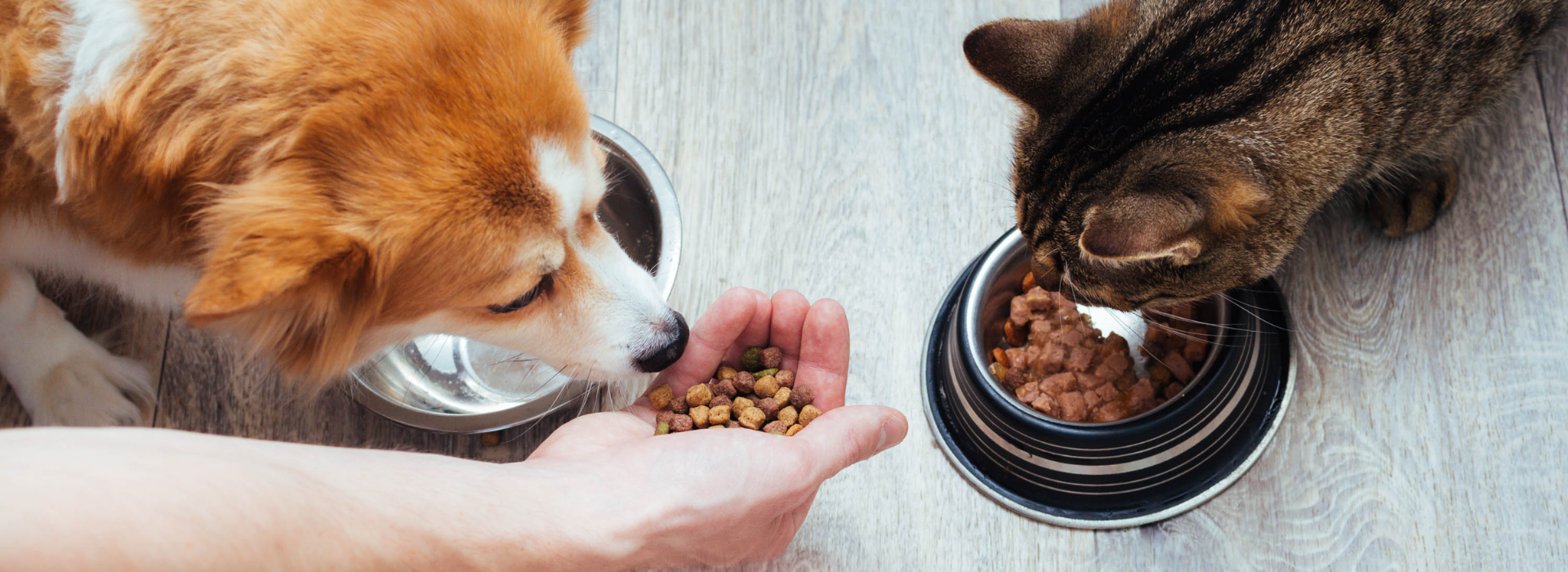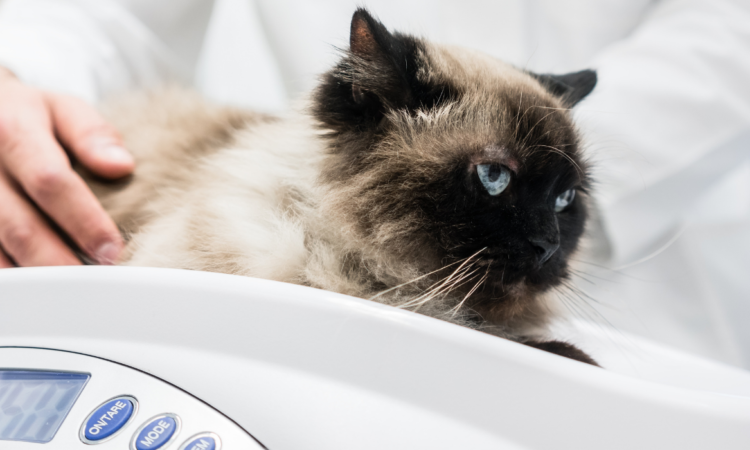The food your pet eats plays a big role in their overall health. With a wide range of choices available, pet owners can have a hard time figuring out which food is best for their pet. We can provide nutrition counselling to help you identify quality pet food ingredients as well as learning how the quality, digestibility, and safety of the food can make a difference to your pet’s wellbeing.
How do I know which pet food to choose?
Dogs and cats both have specific nutritional needs, which can change over time depending on their life stage and health status. As a pet owner, you have a responsibility to ensure your pet gets a nutritionally complete and balanced diet by ensuring it contains the proper amount of essential nutrients in the correct ratios. Unfortunately, it can be difficult to determine which pet foods are safe and meet a pet’s nutritional needs. When looking at a diet, you want to avoid focusing on the ingredients and instead pay attention to the nutrients that the food provides, as well as the quality and digestibility of the food.
What types of nutrients should my pet’s food include?
Pets need basic nutrients like proteins, fats, carbohydrates, vitamins, minerals, and water. These can be broken down into essential nutrients, including:
- Essential amino acids, the building blocks of proteins
- Essential fatty acids, such as EPA and DHA (eicosapentaenoic acid and docosahexaenoic acid, both key omega-3 fatty acids)
- Vitamins A, B, C, D, E, and K and choline
- Minerals such as calcium, copper, potassium, magnesium, and sodium
How should I read pet food labels for nutrients?
You’ll be surprised to learn pet food labels aren’t always the best way to learn about nutrients. They don’t provide information about quality, and you can’t generally tell by looking at the label whether a food will be digestible for your pet. However, if the label says the food is “completed and balanced,” it does mean that it provides all the essential nutrients in the right amounts for a specific pet. Some pet foods include ingredients that appeal to pet owners but don’t provide any significant nutritional value. It’s also important to look out for life stage labels on food products (i.e. growth, adult maintenance, reproduction, and seniors). Since nutritional needs vary over time and from pet to pet, our veterinarians will evaluate your pet’s individual needs before recommending a specific food. To book an appointment, please contact us at 905-690-0040.







